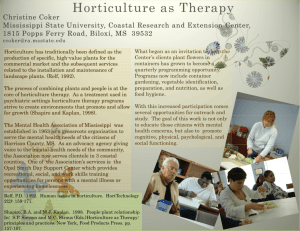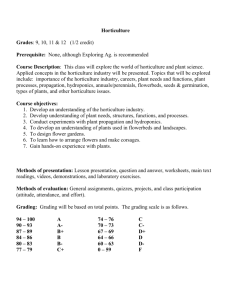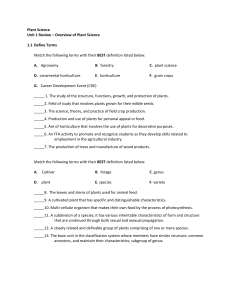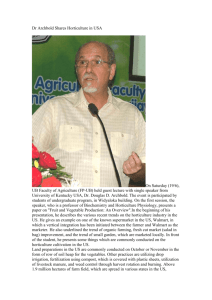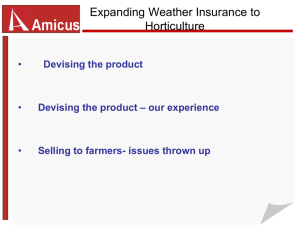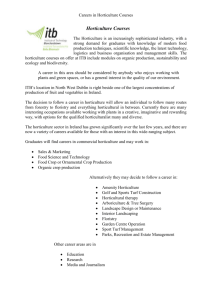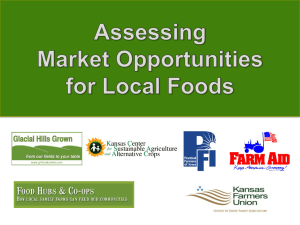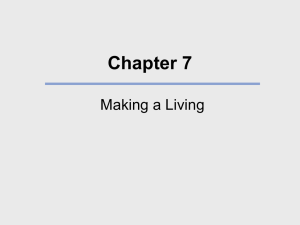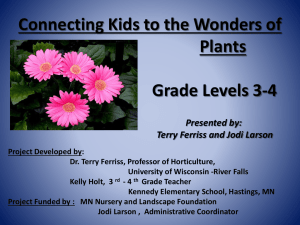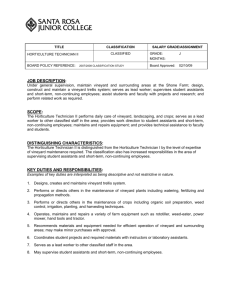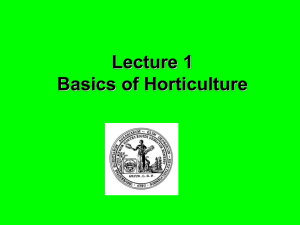Horticultural Societies
advertisement
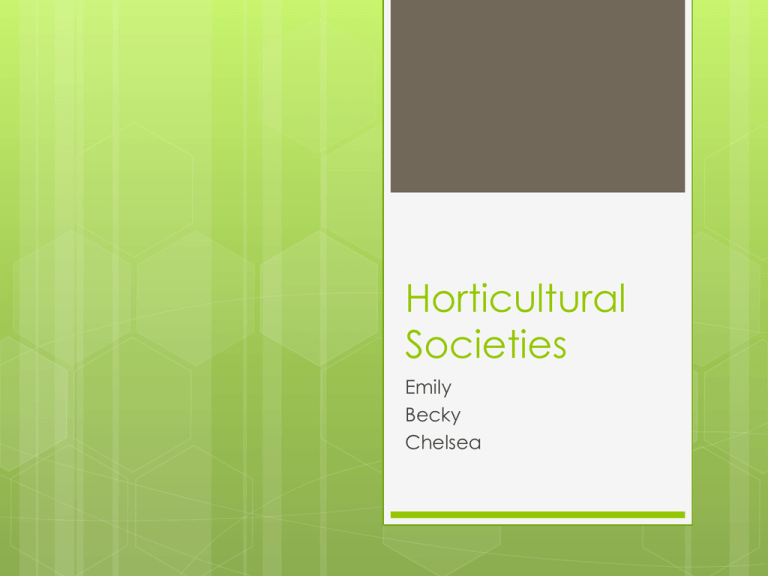
Horticultural Societies Emily Becky Chelsea What is horticulture? Horticulture is the domestication of plants Domestication is the “taming” of plants and animals in order to control their availability for human use Important Definitions In addition there are two more key definitions to understand with this unit; Extensive Horticulture: The use of a large area of land for farming as farmers move to new plots once old ones have be exhausted Intensive Horticulture: Use of technologies, like irrigation and fertilizers, to allow farmers to concentrate farming in a smaller area Extensive Horticulture Extensive Horticulture Known as the “slash-and-burn” style Common in forest regions Consists of cutting down a portion of land with hand tools then burning the logs and under bush The benefits are that the newly plants crops will have the nutrients from the ashes Once the land is depleted of nutrients the farmers will move to a new plot and repeat the same process This process requires so much land that the farmers have to keep creating new plots Intensive Horticulture Intensive Horticulture Uses less land because it uses more technologies that allow the farmers to have more concentrated areas Early on these technologies included; irrigation, fertilizers, and simple ploughs This allowed for the same plots to be reused each year Horticulture has dramatically effected the amount of land used. Instead of travelling over massive amounts of land searching for whatever food grows in that region, people are able have concentrated areas of a desirable plant. This allows for the farmers to be in control of the produce/plants. As an end result enough food is able to be produced to support a greater number of people on a much smaller area of land. Questions What is the difference between extensive horticulture and intensive horticulture? Define horticulture and how does domestication relate to it? How has horticulture changed over the years?

